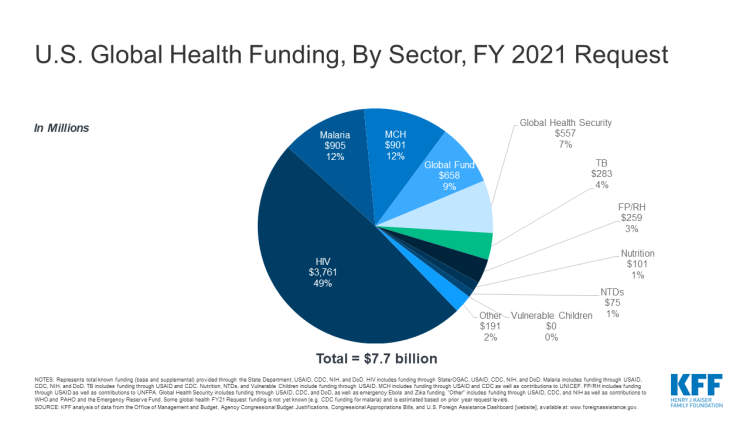In recent years, global health challenges have become an increasing concern. The United States plays a critical role in addressing such issues, particularly through education. With resources and a highly experienced faculty, the USA can provide a wealth of knowledge to help tackle major global health challenges.
Through avenues such as the USAID, Centers for Disease Control and Prevention, and independent research organizations, the United States is leading the world in research and development related to global health. This article will take a closer look at the role of the US in addressing global health issues, along with the important initiatives and strategies they have implemented to improve public health worldwide.
Overview of US Global Health Education Programs
The United States has a long history of addressing global health challenges through education. US-led investments in health and education programs have helped to reduce mortality and disease burden across the world, promoting a healthier and more prosperous global population.
Through the US Agency for International Development (USAID), the US Department of Health and Human Services (HHS) and the Department of State, the US government provides international health and educational assistance to countries around the world. This assistance includes a wide variety of programs that address global health challenges, promote access to quality health services, and build the capacity of local health systems.
Part of the US government’s international health and educational assistance includes support for global health education programs. These programs focus on educating health professionals to improve their knowledge and skills in areas such as infectious disease prevention, maternal and child health, nutrition and health promotion. They also provide vital training and support to health professionals to ensure they are well-equipped to respond to global health challenges.
The US government also supports global health education programs through grants and scholarships for students from around the world. These programs offer students the opportunity to further their studies in the field of global health, gaining knowledge and experience that can help them contribute to improving health outcomes around the world.
The US government also invests in research and educational programs that focus on helping countries increase access to quality health care, addressing public health issues, and developing innovative health technologies. These investments promote the adoption of best practices and the implementation of effective health management strategies.
By providing global health education, the US is committed to helping countries around the world improve their health care systems, reduce health disparities, and promote a healthier global population.
Successful US Global Health Education Outcomes

The United States government is a major player in global health education. As an accredited member of the World Health Organization, the US plays a vital role in increasing global public health knowledge and improving global health outcomes. Through educational initiatives such as the training of health professionals, the creation of global health curriculum, and the engagement of local health professionals to address critical global health issues, the US has been successful in addressing global health challenges.
The US government has implemented a variety of global health educational initiatives that have been successful in achieving outcomes related to public health and health care delivery. These initiatives include:
- The training of health professionals, such as nurses, doctors, and midwives, to provide quality health services and products to those in need.
- The creation of global health curriculum, which aims to educate students and health professionals on the issues facing global health.
- The engagement of local health professionals to address critical global health issues and provide support to local health systems.
- The development of research, evaluation, and educational activities to promote the dissemination of health information.
- The implementation of evidence-based programs and policies to improve global health outcomes.
These educational initiatives have been successful in enhancing global public health knowledge and improving global health outcomes. For example, these initiatives have increased the number of trained health professionals and the quality of health care services available to those in need. They have also increased the knowledge of local health professionals on global health issues and supported local health systems. This in turn has had positive impacts on global health outcomes, such as decreased mortality and morbidity rates, improved access to health care services, and increased public health knowledge.
The US government has also collaborated with organizations in other countries to promote collaboration and develop joint initiatives that can help to address global health challenges. For example, the US has collaborated with the World Health Organization to develop a global health education initiative that provides an understanding of current global health issues, and provides health professionals with the knowledge and skills to effectively address these issues. This initiative has been successful in improving global health outcomes in countries around the world.
It is clear that the US has been successful in addressing global health challenges through education. By training health professionals, creating global health curriculum, and engaging local health professionals to address health issues, the US has achieved positive outcomes and improved global health outcomes. The US government has also collaborated with organizations in other countries to promote collaboration and develop joint initiatives that can help to address global health challenges. This has played a major role in improving public health knowledge and providing quality health care services to those in need.
Conclusion
The US must be at the forefront of encouraging global education through health challenges. Through strategic partnerships with local and global organizations, governments and industry representatives, the US can help to promote educational initiatives that can benefit both individuals and societies as a whole. By making investments in education and making sure people have access to quality healthcare, the US can set an example for other countries in addressing global health concerns.
To support and ensure equal access to healthcare for all, the US must also take steps to reduce disparities in healthcare availability, as these disparities can have far-reaching ramifications on health outcomes and global well-being. Economic, political, legal, and social reforms must be implemented to reduce disparities among different groups, cultures, and geographical locations. Moreover, continued efforts must be maintained to support educational initiatives globally, as education is one of the main pillars of health and global development.




